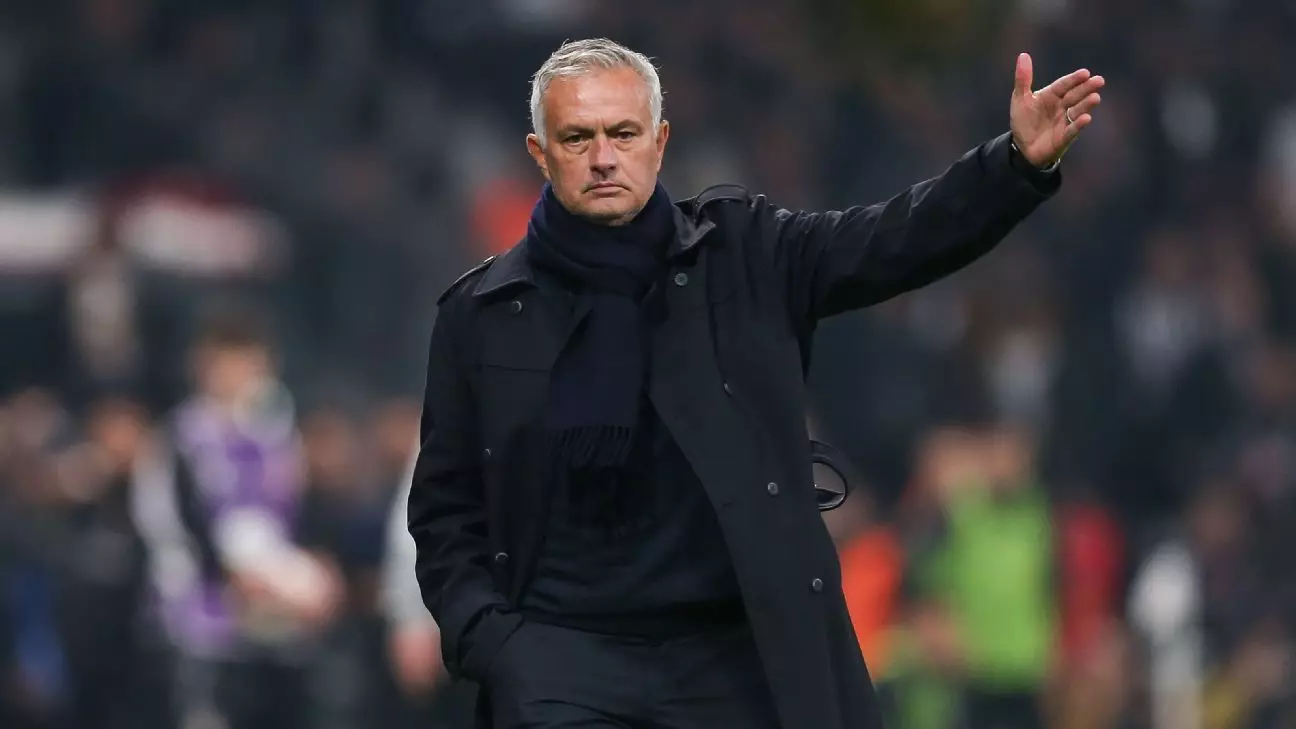The animosity between José Mourinho and Pep Guardiola is rooted deeply in their intense professional histories. This rivalry surfaced prominently when Mourinho managed Real Madrid from 2010 to 2013, opposing Guardiola’s Barcelona, arguably one of football’s most celebrated eras. Their dynamic has since evolved into a symbolic representation of contrasting football philosophies and leadership styles. This ongoing feud has captivated fans and analysts alike, as each encounter between the two coaches adds another layer to their storied rivalry.
Recently, in an intriguing turn of events, Mourinho responded to Guardiola’s interpretation of his comments regarding Manchester City’s potential relegation due to a financial impropriety scandal. The Fenerbahce coach clarified that his intentions are not rooted in spite but stem from a fervent wish for fairness within the footballing world. He emphasized that he desires “justice in football,” particularly focused on the Financial Fair Play (FFP) rules that often have disproportionate ramifications for smaller clubs in the sport. Mourinho pointed out that these entities face harsh penalties for minor budget infractions while larger clubs can often evade similar consequences.
Mourinho’s actions seem to reflect a broader critique of systemic inequalities in football, where wealthy clubs leverage their financial power to sidestep rules that are ostensibly designed to promote fairness. He recounted his own experiences at Roma, illustrating the difficulties and restrictions imposed on clubs with tighter financial constraints. This account resonates with fans and other clubs that often feel marginalized by the actions of wealthier teams.
Guardiola’s reaction to Mourinho’s comments, which involved an indirect jibe at the Fenerbahce coach claiming that Mourinho wishes for City to be relegated, highlights an underlying tension. By raising six fingers in response to a Liverpool taunt, Guardiola showcased his own trophies while indirectly framing Mourinho’s statements as bitterness stemming from his past failures as a manager.
The back-and-forth between the two showcases not just a personal divide but also illustrates the ongoing debate surrounding the ethical implications of financial spending in football. Guardiola’s fast-paced success with Manchester City, nurtured by significant financial backing, presents a stark contrast to the struggles faced by clubs operating within stricter financial limits. This juxtaposition fuels further discourse about the sustainability of modern football economics and the integrity of the sport itself.
In another fascinating development, Guardiola has openly stated that he does not foresee himself managing another club after his tenure at Manchester City, where he has recently signed a contract extension until 2027. His comments reveal introspections about the nature of team management and the mental toll it incurs. Guardiola’s assertion that he may consider coaching a national team instead suggests a desire for a different pace and scale of footballing challenges. This ideology hints at a wider trend within high-profile managers seeking respite from the relentless cycle of club football, where the pressure for immediate results looms large.
The rivalry between Mourinho and Guardiola remains one of the most compelling narratives in the realm of football, interlaced with themes of fairness, power, and personal relationships. While both coaches may exchange barbs, underneath the surface lies a complex web of mutual respect and professional acknowledgment.
Ultimately, these interactions are emblematic of larger conversations within football, dealing with financial equity and the ethics of success. The sport is at a critical junction where the implications of wealth increasingly shape narratives, challenge traditions, and redefine what it means to win. As Mourinho and Guardiola continue their respective journeys, fans can only hope for a future where justice prevails, not just for big names but for all clubs and their passionate supporters, uniting them through the beautiful game.

